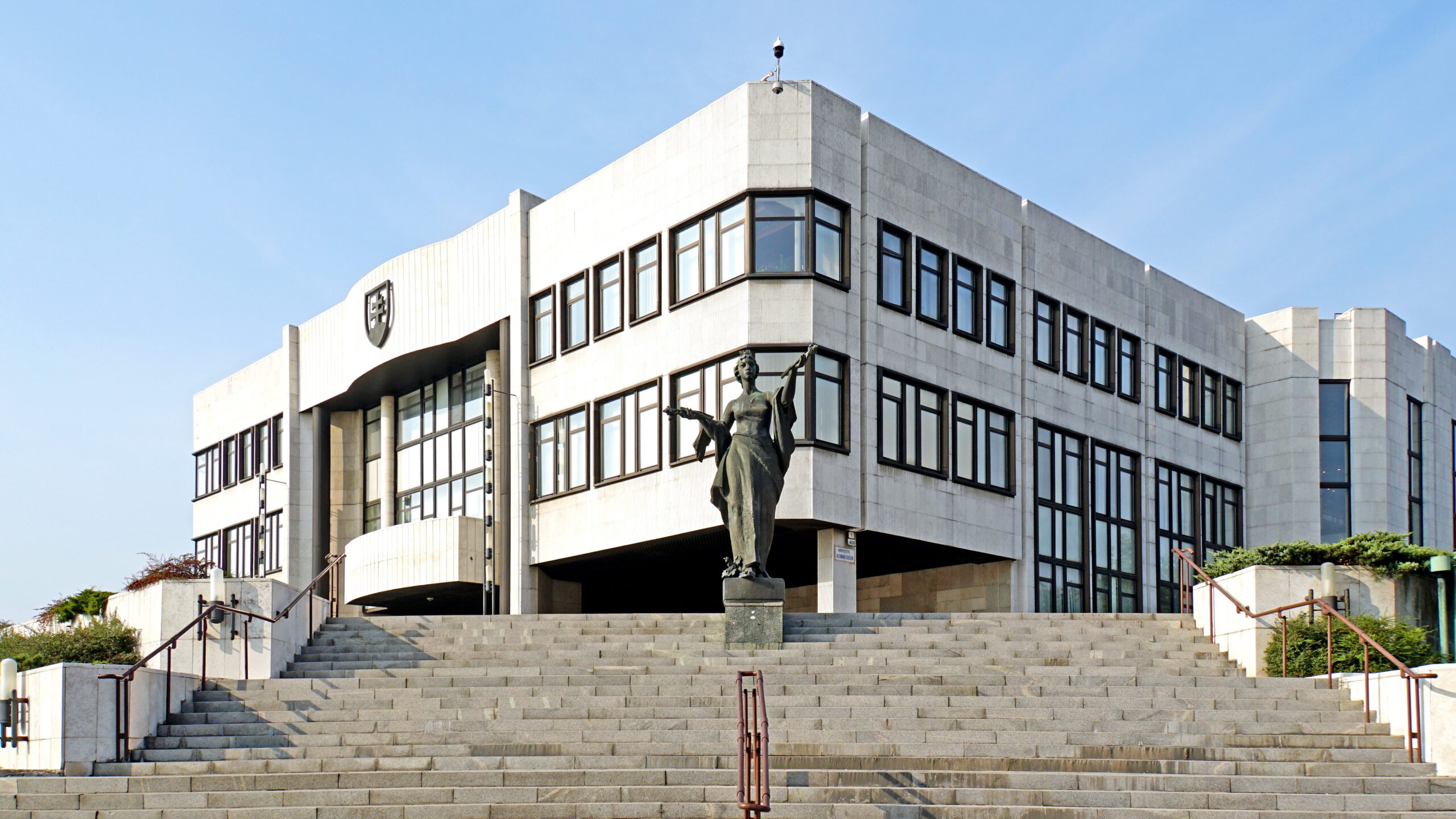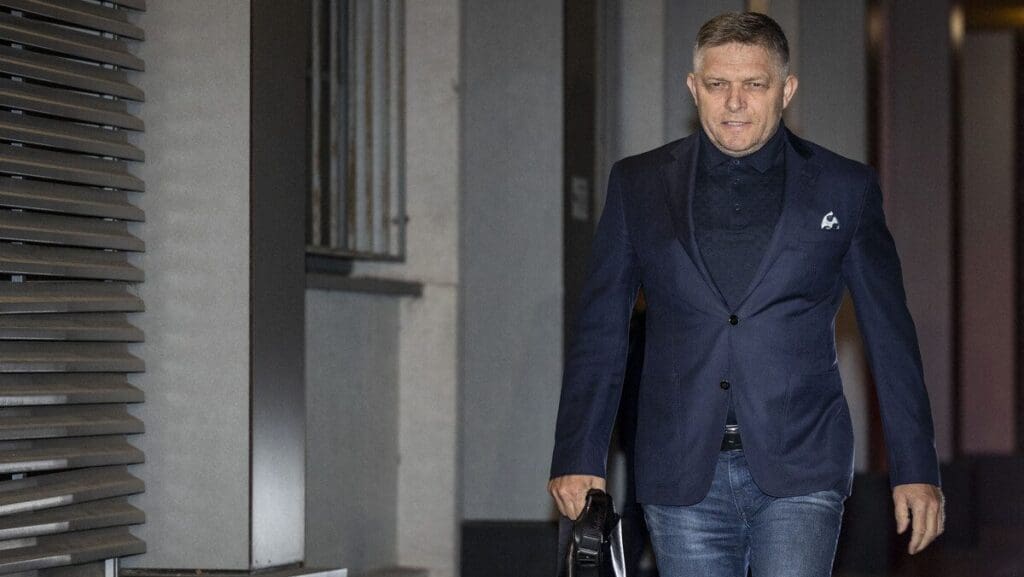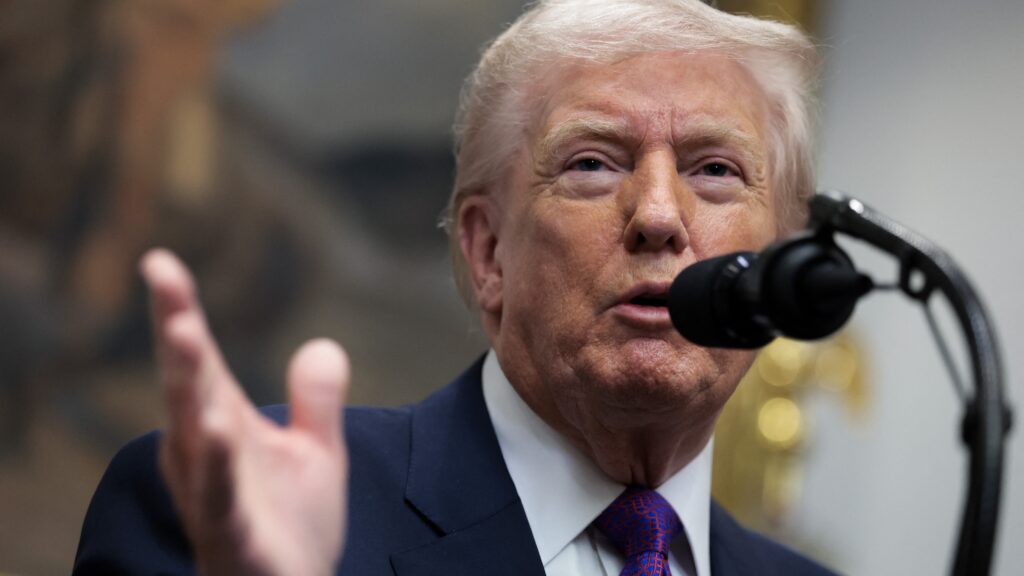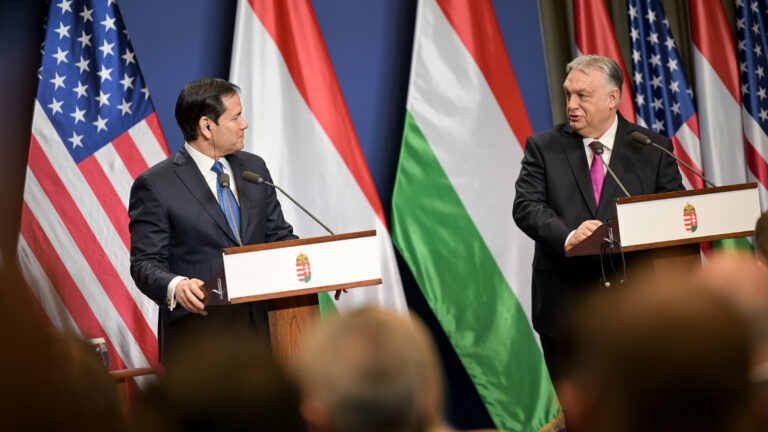As Péter Szitás reported in Hungarian Conservative on 26 September, the National Council of the Slovak Republic passed a constitutional amendment that, inter alia, recognizes only two sexes, bans surrogacy, bolsters parental rights in schools, and confirms Slovakian law enjoys primacy over EU equivalents in matters of ‘national identity’. Prime Minister Robert Fico called it a ‘constitutional barrier against progressive politics’. The reforms will take effect on 1 November.
Amending the Slovakian constitution requires a three-fifths vote in parliament, something the sponsors achieved in razor-thin fashion, securing 90 of 150 votes. As the current government coalition can only count on 78 votes, the measure required crossover support from members of the opposition. Up to the morning of the vote, Slovakian political figures harboured doubt about the amendment’s prospects.
Ultimately, most members of the opposition Christian Democratic Movement (Kresťanskodemokratické hnutie, KDH) joined the government side, which was widely expected, as it played a key role in writing the latest version of the amendment. Three members of former Prime Minister Igor Matovič’s OĽaNO and Friends (OĽaNO a priatelia) party coalition also joined the government. Two were unexpected, with their intentions confirmed shortly before the vote. Marek Krajčí, one of these, had asserted earlier in the week that ‘it is impossible to support Fico’.
‘[Slovakia]’s political landscape developed differently from those of neighbouring countries’
Such a development is comparatively common in Slovakian politics, as the country’s political landscape developed differently from those of neighbouring countries. In most of post-communist Central and Eastern Europe, nationalists and Christian democrats have united to form a broad right-wing bloc, while socialists, greens, and (increasingly often) liberals comprise a broad left-wing bloc. This neat consolidation did not occur in Slovakia after the country earned its independence in 1993.
For decades, this has made the country and its public figures difficult to characterize. Prime Minister Robert Fico, for example, has been variously called ‘left-wing’, ‘centre-left’, ‘left-wing nationalist’, and ‘far-right’ in English-language media. The country’s political landscape is so fragmented that Fico was able to form a government after winning just 23 per cent of the vote. By comparison, Poland’s then-ruling Law and Justice party led all parties with 35.4 per cent of the vote but was consigned to opposition.
Increasingly, though, Slovakia might be a bellwether rather than an outlier, as Western politics becomes a competition between liberal and postliberal forces.
Earlier this month, the Party of European Socialists in the European Parliament expelled Fico’s Smer-SD party. The move was ostensibly a punishment for the Fico government’s openness to collaboration with Russia and China, signifying a shift in European socialist priorities. Fico symbolically spoke at CPAC Hungary, where he called himself a proud socialist and man of the Left.
A British election-interference scandal, uncovered earlier this year, appears similarly bizarre on the surface. Prior to the 2023 Slovakian parliamentary elections, the British Foreign Office funded campaign activities targeting potential voters of the Progressive Slovakia (Progresívne Slovensko, PS), a left-liberal pro-EU party that is currently the most prominent component of the anti-Fico opposition. In other words, the Foreign Office under a Conservative government funded election activities in a fellow NATO country to the benefit of one type of left-wing party and the detriment of another type.
Taking these events at face value is unhelpful in 2025. The British Foreign Office consists of liberal professionals and bureaucrats, irrespective of what party governs in London, and it arguably prioritizes liberal ideology above any semblance of British national interest. Fico promotes national and postliberal policies, even if he is a traditionally ‘left-wing’ figure, while PS and similar parties are reliably liberal, internationalist actors. Then, there is much talk of what NATO should mean more than 30 years after the collapse of the Soviet Union, as Russia and Ukraine wage war on the alliance’s doorstep; but whatever its stated purpose, it has become a club of liberal governments. Slovakia is a member on paper but a renegade in spirit.
‘[Fico] has become the uncontested face of postliberal Slovakia, and one of the key faces of postliberal Europe
Matovič, whose own renegade party members were responsible for assuring the amendment outcome, insisted before the vote that Fico is only pretending to be conservative. In a way, it is immaterial. Regardless of his motivations, he has become the uncontested face of postliberal Slovakia, and one of the key faces of postliberal Europe. This has earned him regular invective from the European political establishment, with more surely forthcoming after the amendment’s passage, and a near-fatal gunshot wound.
‘Robert Fico didn’t notice November 1989,’ contended KDH leader Milan Majerský in a recent interview, ‘and suddenly a former communist became a social democrat. But we can also see he leans toward communism in some way…In the KDH, we will not agree with the progressive ideologies and experiments that progressive-liberal parties in Slovakia are trying to push through. Nor will we agree with communist fabrications and speculations about what Slovakia could look like.’
In a different country, Majerský and Fico would have become allies, rather than bitter opponents. If recent events are any indication, the former might materialize after all.
Related articles:







